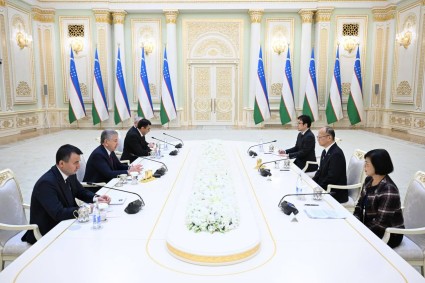Small, medium and large-sized industrial enterprises in Uzbekistan will be able to improve energy efficiency and productivity, thanks to the Energy Efficiency Facility for Industrial Enterprises Project - Phase 3, approved yesterday by the World Bank’s Board of Executive Directors. The Project will be financed by a US$ 200 million loan from the International Bank for Reconstruction and Development.
Uzbekistan is one of the most energy-intensive economies in the world. Its energy intensity is 35% higher than that of neighboring Kazakhstan and three times that of Germany. The country’s industrial sector, which largely utilizes inefficient and obsolete technology in its production processes, accounts for about 40% of total energy consumption.
The Government of Uzbekistan aims to reduce the country’s energy intensity by about 50% by 2030, and as such, has initiated modernization investment programs that target key energy-consuming sectors.
“Modernizing outdated equipment and production processes are crucial for improving the competitiveness of Uzbek enterprises,” said Hideki Mori, World Bank Country Manager for Uzbekistan. “Energy efficiency will help minimize operation and maintenance costs, improve productivity and generate real cash flows. It will also contribute to the mitigation of climate change. We are delighted to expand our energy efficiency support to Uzbekistan through this project.”
Small and medium-sized enterprises (SMEs) in Uzbekistan, which are mostly private firms, have become essential to driving manufacturing growth: their share of industrial output increased from 12.9% in 2000 to 45.3% in 2016. The SMEs generally have newer production facilities, but those operating in relatively energy-intensive subsectors such as construction materials, textile, and food production need to upgrade their energy-consuming equipment to become more competitive.
Phases 1 and 2 of the Energy Efficiency Facility for Industrial Enterprises Project, approved in 2010 and 2013 respectively, supported the introduction of dedicated credit lines by participating banks for investment in improving industrial energy efficiency. With a total of US$ 125 million in World Bank financing, these earlier phases of the Project helped 31 large state-owned industrial enterprises – predominantly in the oil, gas, chemical and construction sectors – introduce energy-efficient technologies and practices. By the end of 2017, these investments had resulted in energy savings equivalent to 360 GWh per year over the lifespans of the modernized equipment or facilities, and more than 580,000 metric tons of CO2 emissions per year would be avoided.
Phase 3 of the Project will continue to finance energy-saving investments in both large industrial enterprises and industrial SMEs, and support energy efficiency capacity development through targeted technical assistance. It is expected that investments under Phase 3 will generate an additional 386 GWh of annual energy savings and help avoid an additional 799,000 metric tons of annual CO2 emissions.
The World Bank is helping Uzbekistan to reach a wide range of development goals by supporting 16 projects worth US$ 2 billion. These projects support agriculture and water resources management, energy, transport, healthcare, education, urban development, water supply and sanitation.












